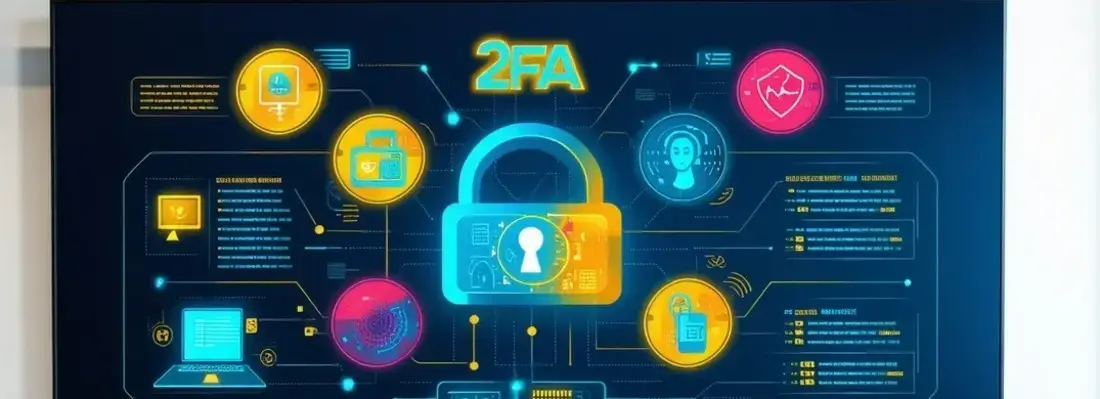Essential Cybersecurity Tips for cPanel Users: Safeguard Your Website
Date: 21 August 2024

In today's modern digital world, website security is more important than ever because cybersecurity threats are everywhere. If your website is compromised, it can directly lead to loss of data, revenue, and trust.
If you're using cPanel web hosting to manage your site, you have a powerful tool at your disposal. But it's crucial to improve cPanel hosting security to protect your website from cyberattacks. In this article, we’ll learn the most essential cybersecurity-related tips for cPanel users so that they can secure their websites.
Understanding cPanel
It’s a web-based control panel that makes managing your website easy. It's packed with features that help you manage your files, databases, email accounts, and more, all from one place. Many website owners value cPanel because it's user-friendly and saves a lot of time.
Furthermore, there are multiple cPanel components that you can use. However, below are the most common features and tools:
- File Manager: Manage your website files directly.
- Backup Wizard: Easily create and manage backups.
- Email Accounts: Set up and handle email accounts.
- Databases: Manage your MySQL databases.
- Security Tools: Access various security features to protect your site.
cPanel's popularity comes from its ease of use and powerful features. It simplifies complex tasks, allowing even those with minimal technical knowledge to manage their websites efficiently.
Common Cybersecurity Threats to Your Website
Your website can be vulnerable to various cybersecurity threats, including:
- Malware: Malicious software that can harm your site and steal data.
- DDoS Attacks: Overloading your server with traffic causes your site to go down.
- Phishing: Trick users into revealing sensitive information.
These cyber threats can damage your website and business, disrupting operations and ruining your reputation overnight. It's therefore imperative to guard against these common cyber threats and implement basic cybersecurity protections while using cPanel.
12 Essential Cybersecurity Tips for cPanel Users
Below are the essential cybersecurity tips for cPanel security that you can use:
1. Use Strong Passwords
Your first line of defence is having strong, unique, and secure passwords. Avoid simple passwords like “password123.” Rather, use a mix of letters, numbers, and symbols. Regularly review and update your passwords to keep them secure.
2. Enable Two-Factor Authentication (2FA)
Two-factor authentication enhances website security by adding an extra layer of protection. It requires not just your password but also a code sent to your phone. To enable 2FA in cPanel, go to the WHM → Home → Security Center → Two-Factor Authentication section and follow the instructions. This makes it much harder for hackers to access your account.
Keep in mind that 2FA supports only one concurrent session at a time for any user. If you open multiple browser windows to cPanel and log out of one of them, then the web server will log out of the other windows as well.
3. Regular Backups
Website backups are crucial. If something goes wrong, a backup can save your site. cPanel makes it easy to set up automatic backups. You can store these website backups in a secure location, preferably not on the same server as your website.
4. Update Software Regularly
Keeping your cPanel, plugins, and themes up to date is important. Updates often include security fixes for vulnerabilities. Enable automatic updates in cPanel web hosting to ensure you’re always protected.
5. Use Secure Connections
A website is secured via an SSL certificate, which encrypts information between your site and its visitors, protecting sensitive information. You can install and manage SSL certificates in cPanel under the Security section. This is essential for any website handling personal data.
6. Limited Access and Firewall
For cPanel security, only give access to those who need it. In cPanel, you can create and manage user accounts with specific permissions. Regularly review and update these permissions to make sure no one has more access than necessary.
Moreover, you need to enable firewall protection. A firewall prevents harmful traffic from reaching your website. In cPanel, you can configure firewall settings to protect your server. This helps prevent various types of attacks and keeps your site secure.
7. Monitor Logs and Alerts
Monitoring your logs can help you spot unusual activity. In cPanel, you can access logs and set up alerts for suspicious activities. Regularly reviewing these logs helps you catch issues early.
8. Implement IP Blocking
Sometimes, blocking certain IP addresses can help prevent attacks. As a cPanel user, you can block IP addresses that pose a threat. To keep your blocked IPs list effective, regularly review and update it.
9. Secure File/Directory Permissions
Proper file permissions make sure that only authorized individuals or users can access specific files. You can set and manage these permissions in cPanel. To maintain security, you should regularly review and adjust them.
10. Scan for Malware
Regular malware scans can help you detect and remove malicious software. cPanel web hosting offers tools to perform these scans. If malware is detected, take immediate action to remove it and secure your site.
11. Use Security Plugins and Tools
There are many security plugins and tools available for cPanel. These can provide extra layers of protection for your website. Install and configure recommended security tools to enhance your site’s defences.
ConclusionSecuring your website is a continuous process. By following these essential cybersecurity suggestions, you can significantly lower the risk of cyberattacks and keep your site safe.
Remember to use strong passwords, encourage two-factor authentication, perform regular backups, keep your software updated, use secure connections, limit access, enable firewall protection, monitor logs, implement IP blocking, scan for malware, secure file permissions, and use security plugins.
By taking these steps, you’ll safeguard your website and ensure a safe experience for your visitors. Stay vigilant and keep learning about new security practices to stay ahead of potential threats.







